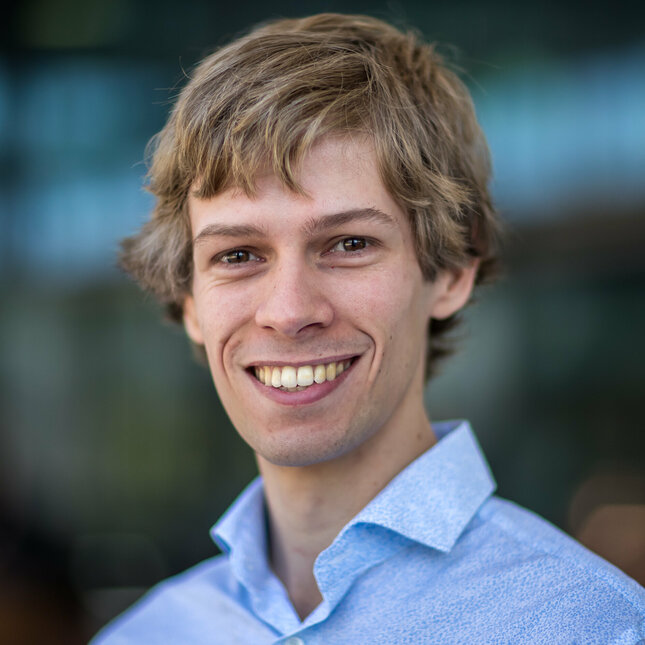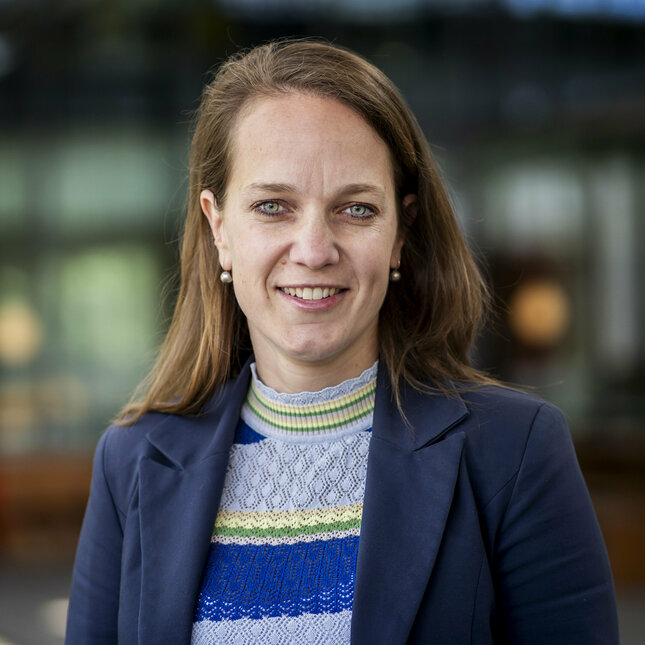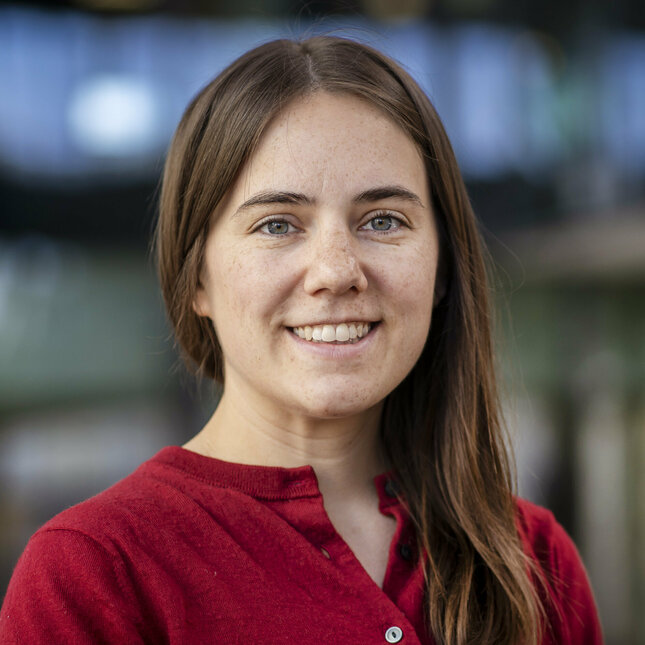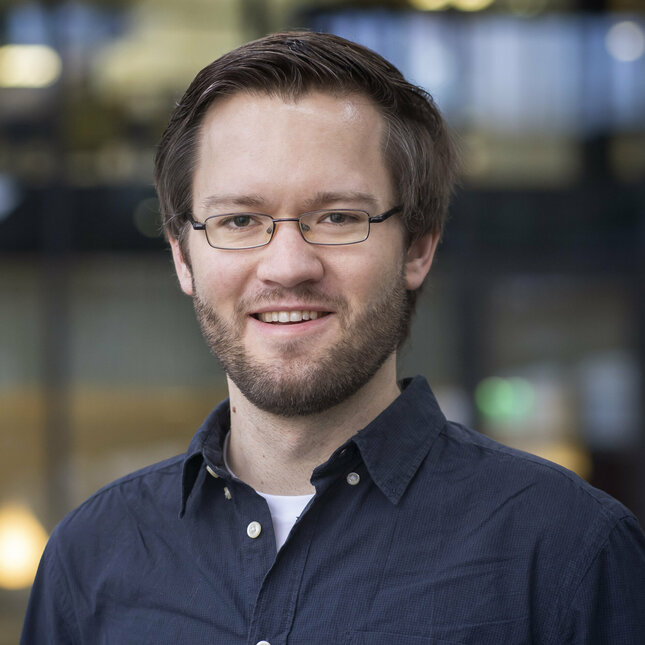Six early-stage TU/e researchers have been awarded a Veni grant from the Dutch Research Council (NOW). The funding programme is intended for researchers who have recently concluded their PhD research. Melvin Drent, Thomas Neele, Debby Klooster, Ulrike Schmidt-Kraepelin, Matthias Volk, and Shauna O'Donovan will each receive Veni funding worth up to 320,000 euros which can be used for research over the coming three years.

Melvin Drent: New mathematical approaches for high-dimensional inventory problems
Inventory systems in domains such as healthcare (e.g., blood banks, medication), public utilities (e.g., service logistics for public transport or emergency response services), and food supply (e.g., food banks, retail) are increasingly dependent on many factors or variables. In other words, they are high-dimensional problems.
Until now, to solve these complex systems has required the use of heuristic policies. However, the use of these 'shortcut' approaches can often lead to sub-optimal outcomes as evidenced by waste, resource unavailability, or both.
For his Veni project, Melvin Drent (Department of Industrial Engineering and Innovation Sciences) will develop new mathematical approaches for the manageable analysis of high-dimensional inventory problems based on asymptotic techniques that lead to significant problem dimension reductions. This research will lead to novel, easy implementable policies that have rigorous theoretical performance guarantees, thereby reducing waste and resource unavailability.

Thomas Neele: Explainable formal methods with certificates
While formal analysis techniques for software can reduce the surging risks associated with it, we currently lack analysis methods that can produce correctness certificates of industrial-size software. The need for such a method has recently become evident after the discovery of errors in several established analysis techniques.
In this Veni project, Thomas Neele (Mathematics and Computer Science) will - for the first time - integrate scalable analysis and the creation of compact certificates.
Independent (automated) verification of those certificates offers nigh absolute certainty about the analysis result. This will raise standard for verification of safety-critical software far beyond the current practice.

Debby Klooster: Brain signals to assist ultrasound waves in the battle against brain disorders
Transcranial ultrasound stimulation (TUS) is an innovative technique with the potential to revolutionize the treatment of brain disorders. In contrast to conventional neurostimulation methods, deep brain regions can be targeted with unprecedented spatial precision using ultrasound waves. Validation of target engagement is currently a crucial missing link in practice. Also, to date, brain states during TUS application are not considered.
For her Veni-funded project, Debby Klooster (Department of Electrical Engineering) will use electric brain signals measured by electroencephalography (EEG) to develop a method to validate target engagement. In addition, an EEG-synchronized TUS setup will be realized to enhance responses to TUS by steering stimulation to optimally responsive brain states.

Ulrike Schmidt-Kraepelin: From ballots to decisions: enhancing transparency and fairness in participatory budgeting
Participatory Budgeting (PB) empowers citizens to actively shape the allocation of public funds by proposing and voting on projects in their local communities. Unfortunately, existing voting mechanisms fall short, either in fairness or in transparency.
In her project, Ulrike Schmidt-Kraepelin (Department of Mathematics and Computer Science) will explore a novel approach that, by using a mild form of randomization, has the potential to generate voting mechanisms with fairness and transparency guarantees that are impossible to achieve with current approaches.
By doing so, the project aims to lay a sound foundation for this important form of civic participation.

Matthias Volk: UNcertaInty In COntinuous-time maRkov chaiNs (UNICORN)
Ensuring the safety and reliability of complex, high-tech systems is of utmost importance. Formal methods allow for the checking of requirements such as 'the probability of a system failure within a year is below a certain threshold'. However, applying these techniques requires precise knowledge of the probabilities of component failures.
In this project, Matthias Volk (Department of Mathematics and Computer Science) seeks to develop analysis techniques for systems with unknown or imprecise probabilities. The new techniques allow to ensure that the overall safety requirements are met, even if there is uncertainty in the component failures.

Shauna O'Donovan: Generating hybrid-modelling approaches to reveal patient-specific risk-profiles in cardiometabolic diseases
Current strategies for improving cardiometabolic health focus on achieving weight loss through diet and exercise, but they do not work for everyone. This calls for more personalized interventions tailored towards each person's specific needs.
In this Veni-funded project, Shauna O'Donovan (Department of Biomedical Engineering) will create an innovative hybrid-modelling framework, blending existing physiological knowledge with machine-learning.
This hybrid approach facilitates the integration of high-dimension omics measurement with time-series data and can be trained using less data. O'Donovan will use this hybrid-modelling approach to shed light on how gut health and inflammation influence metabolic resilience, aiding in the design of personalized treatments for cardiometabolic diseases.
About NWO Veni grants
Veni is an individual science grant, part of the NWO Talent Programme, and aimed at researchers who have recently obtained their PhDs. They will conduct research within the full breadth of science.
The 174 grants from the 2023 Veni round are divided between 53 at Domain Science (ENW), 69 at Domain Social and Humanities (SGW), 25 at Domain Applied and Technical Sciences (TTW) and 27 grants at Domain Health Research and Development (ZonMw). The projects receiving funding therefore focus on a wide variety of topics: from the use of algorithms and AI in criminal justice to the role of gut bacteria in our mental health, and from correcting quantum errors like Sherlock Homes to the distribution of colonial profits in the Netherlands between 1850 and 1860. Each grant is worth up to 320,000 euros, and it will allow the laureates to further develop their own research ideas over the next three years.






